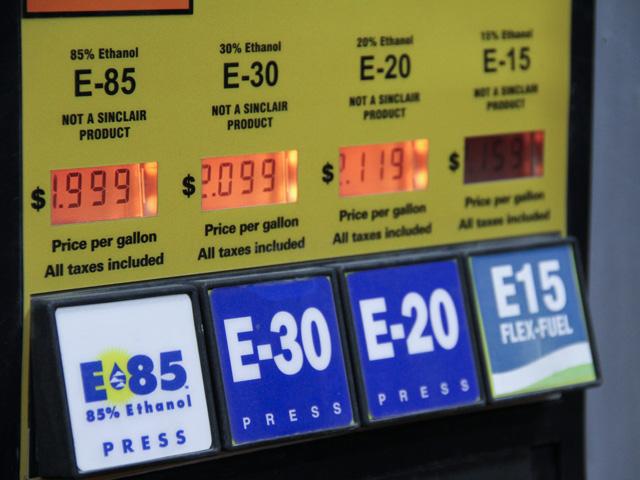The Renewable Fuels Association (RFA) welcomed the announcement by President Trump that a trade...
E30 Demonstration Shows Fuel's Promise

Results of a study recently released by Nebraska Governor Pete Ricketts shows that the use of E30 in state non-flexible fuel vehicles for one year found no observable negative effects on vehicle performance or costs per mile.
Just as markets for E15 continue to grow across the country, the study also found because E30 is about 2.5% less expensive than E15, the wide use of E30 would make it a more economically viable fuel. What's more, the study found non-FFVs were able to adjust the air-to-fuel ratio to adapt to E30's higher oxygen content.
"So, this is really a kind of a step to getting certification for higher blends of ethanol in your regular vehicle," Ricketts said. "When you use E30 in your vehicles, this tremendously helps out the environment. So, for example, by using E30 you can reduce carbon black emissions from your tailpipe by 45% and reduce the NOX (nitrous oxide) and the hydrocarbon emissions by over 20%. People, by using ethanol, can save money at the pump, help clean up the environment and, of course, it's great for our farmers and ranchers as 35% of our corn crop goes into ethanol."
The year-long demonstration involved 50 non-FFVs from the state of Nebraska to determine adaptability, economic feasibility and environmental effect of using E30. Twenty-six vehicles were fueled by E15 and 24 vehicles were fueled by E30.
The vehicles used were Dodge Avengers and Chargers, as well as Ford Fusion, model years ranging from 2013 to 2015.
"The increase in ethanol concentration does not cause engine coolant temperature to change significantly," a University of Nebraska-Lincoln analysis of the study results said.
Finally, a multitude of more complex statistical data analyses were conducted to determine the effect of E30 on overall vehicle performance. Results from that analysis indicate no significant change in performance between the two fuel types.
If E30 consumption was allowed statewide and 10% of drivers convert from E10 to E30, ethanol consumption would grow by 18.5 million gallons per year and CO2 emissions would decrease by 64,000 tons per year.
Roger Berry, administrator of the Nebraska Ethanol Board, said the study confirms E30 could be safely used in the state. "People have to know that the legacy fleet on the road today can use that same fuel," he said. "That is exactly why we have demonstrated with this project that today's cars will not be found along the side of the road as junk, because they put E30 into their car. We have not had a single incident of a car being left along the side of the road because they use E30, it works perfectly."
Geoff Cooper, President and CEO of the Renewable Fuels Association (RFA), said evidence continues to mount that E30 can be used safely in regular vehicles. "It is especially notable that while E30 may have a lower energy content per gallon, the report shows no meaningful loss of fuel economy under real-world driving conditions," Cooper said.
Cooper continues, "Indeed, if these vehicles had been optimized to take advantage of E30's higher octane rating -- something RFA continues to advocate for -- they would have likely seen even better fuel economy results. The key takeaway is that more than 300,000 miles were driven on E30 in vehicles that are between six and eight years old, with no reported or observable impacts on vehicle performance. And it's likely that newer vehicles are even more adaptable to higher ethanol blends."
Editor’s Take:
Another piece of science and practical experience that demonstrates what a significant impact ethanol can have in powering our current vehicles. Better for the environment, more economical and it helps farmers by increasing demand for their crops. As we have stated previously, this is truly a win-win scenario. However, in order for this conversion to come to fruition, regulators and legislators at both the state and federal levels will need to get behind the initiative. In addition, refiners and gas station owners will have to be convinced that it is in their best interest as well. Reminiscent of the “gasohol” battles of the 1970’s, ethanol must constantly “prove itself”. It is our hope that everyone will eventually get on board with E30. It will once again put more money in the pockets of your major truck customer base – farmers/ranchers. That can only be good for business now and longer term.








